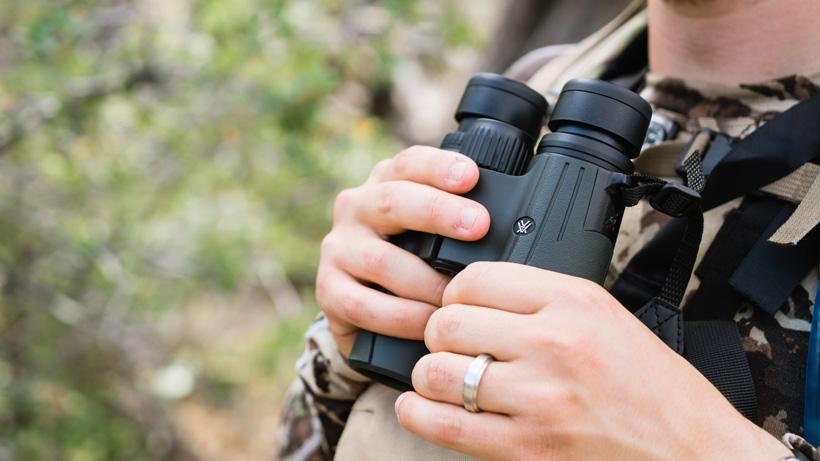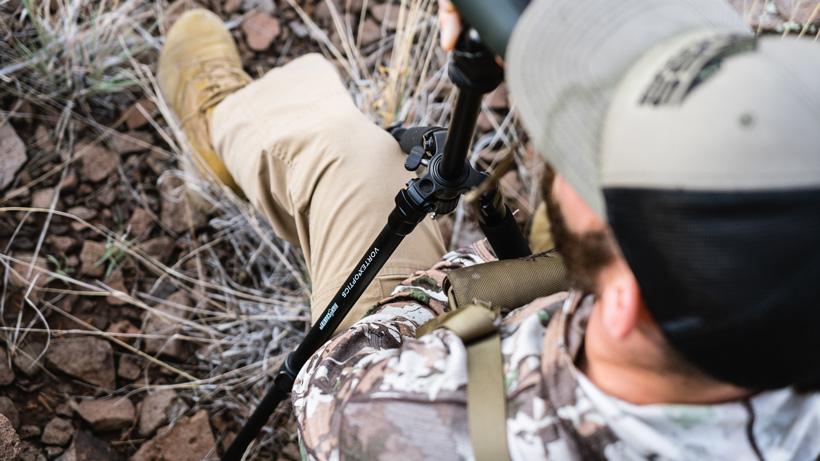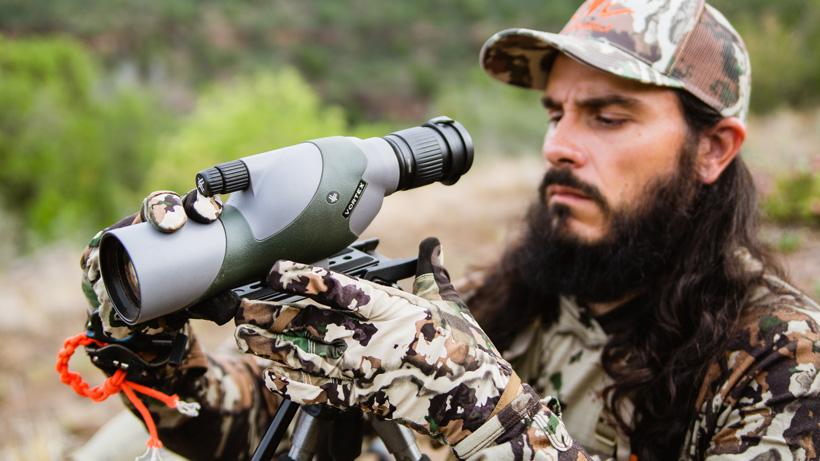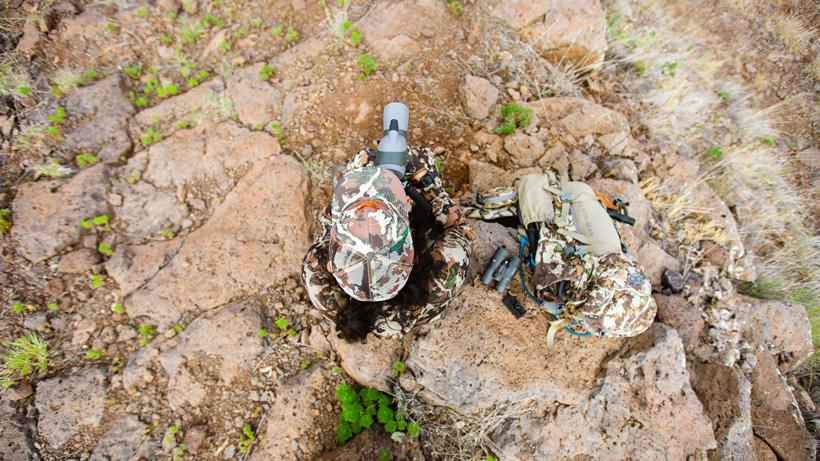




The Vortex Viper 10x42 HD binocular.



Over the past few years, I think two things have become more commonplace in the hunting world. More folks want to get into the pursuits of backpack hunting and realize how valuable glassing is in a western hunter’s arsenal of tricks. When I was younger, I never even dreamed of backpack hunting and rarely even carried binoculars. These days, I can't imagine life without backcountry glassing sessions to fill my time. Backpack hunting is a tricky thing though, right? Especially for those who are new. Getting to know your gear inside and out as well as where it fits in your pack and your system is a big deal. Glass isn’t any exception to that and I feel that it’s often left out of the conversation when it comes to backcountry gear much like our weapons are. But are they just staples? So, why not put some thought into what glass we’re taking with us, just like we think about which sleeping bag to take?
The first thing, I think you need to ask yourself is if you even need glass in the first place? I'd say for most western hunting you do, but if you're on a hunt that takes place in very dense cover, glass might not be the highest on your radar. If anything, a small pair of 8x binoculars, but that's about it. If you happen to be backpacking into a densely-timbered area trying to bugle for elk, I might consider just leaving the glass at home if you're trying to go extra lightweight. While glass is something that I have never been able to part with, this is definitely something to consider. If you don't need it, then why bring it?
Binoculars are a non-negotiable item in a western hunter’s toolbox in my opinion. With so much open space and vast public lands to look over, glassing saves a ton of energy. It also lets us observe animals undisturbed, which pays off big on the intel side of things. For that reason alone, I always have a pair of binoculars with me. But this is where you could go one of two ways. A hunter could either opt to take one set of high magnification binoculars and eliminate the need for a spotting scope, which would leave more space in your pack, or a hunter can use a smaller pair of binoculars and also carry an additional spotting scope. The larger pair is going to be heavier on your neck/chest but will let you see farther. The smaller pair is going to be much lighter and easier to maneuver, but lack in glassing distance. It’s definitely a trade-off and really just depends on the personal preference of the hunter and what game is being pursued in what type of county. I prefer to take a 10×42 binocular. This fits well on my chest, is compact and I can easily freehand glass with them as I’m walking around.
The debate between using spotting scopes or binoculars is one that will never cease to exist. Spotting scopes are fantastic tools for looking over big tracts of country and zoning in on tight quarters from afar. They are also awesome for evaluating animals if that’s your cup of tea. Paired up with a good set of binoculars, you’ll have a rock-solid system for any hunt out there. A hunter can get a spotter that ranges in size from pretty compact all the way to downright big. I’ve used the compact ones in the past (50 mm) and they are great for these hunts where you’re trying to save weight and space. They do suffer a tad though in super big country where you need that extra push of magnification. For that reason, I think a scope that lands in the middle is perfect for backpack hunting (65 mm). The straight ones tend to fit better in a backpack, but I’ve used an angled one for a bit now without any complaints. It all depends on what else you’re toting around in that pack. This brings me to my next point. While they do hold their place, they also can take up quite a bit of room in your backpack. And, for backpack hunting, that is something that definitely needs to be taken into consideration.
Let’s not forget the tripod in this whole equation. A good tripod is a huge part of a solid glassing system. Tripods have really changed the game when it comes to surveying country with optics. There is no better way to meticulously pick apart a country than with glass on a tripod. I like to lock the optics in place and grid search that one view with my eyes when I’m really peering through dense vegetation or looking for bedded animals. Once I do find what I’m looking for, I can lock the optics in place, which makes keeping tabs on the critter much easier than trying to find it over and over again. Another plus for a tripod is that it lets you spot movement much easier. You won’t miss that ear flick as much with the use of a tripod. Because of all of these benefits, a tripod really is a must.
For backpack hunting, I prefer a more compact tripod. Standing up and glassing really isn’t a concern or need for me. I do all of my tripod glassing while sitting down. Carbon tripods are going to be more lightweight than aluminum, but lightweight is not always the best thing. With a lighter weight tripod, you’ll get a little more shake with wind and such. So, again, it’s based upon personal preference. If a little shake is fine with you, then by all means, go ahead. That’s my preference. With heavier optics, though, it might be in your best interest to go with a heavier tripod to support the optic. Tripods aside, this all doesn’t include the head. What was once a lightweight tripod could turn out to be heavier than you thought with that nice fluid head you want for glassing. It really matters how much you lean on your glass for your hunt. If glassing is the name of the game, then these trade-offs are probably worth it. Ask yourself if your hunt is going to suffer based upon which combo you decide to bring.
Just like everything else in your backcountry system, all of this comes down to weight and size versus functionality. For instance, some folks prefer to pack in an ultralight chair on their hunts. While that sounds nice and I’m happy for them, I’ll likely never do that. The same logic goes with optics. Some hunters will not leave the truck without a 95 mm spotting scope. They live and die behind their glass and their whole hunt revolves around it. So, for them, it’s clearly worth it to bring that extra weight and take up space in their pack. Other folks wouldn’t dream of taking any spotting scope for that matter. With so many options out there at our fingertips, everyone can really hone in their optics setup for backpack hunting. They can mold it to their style and hunt the same way that we mold backcountry gear like tents, water filters, etc. Glass is gear and essential gear at that.